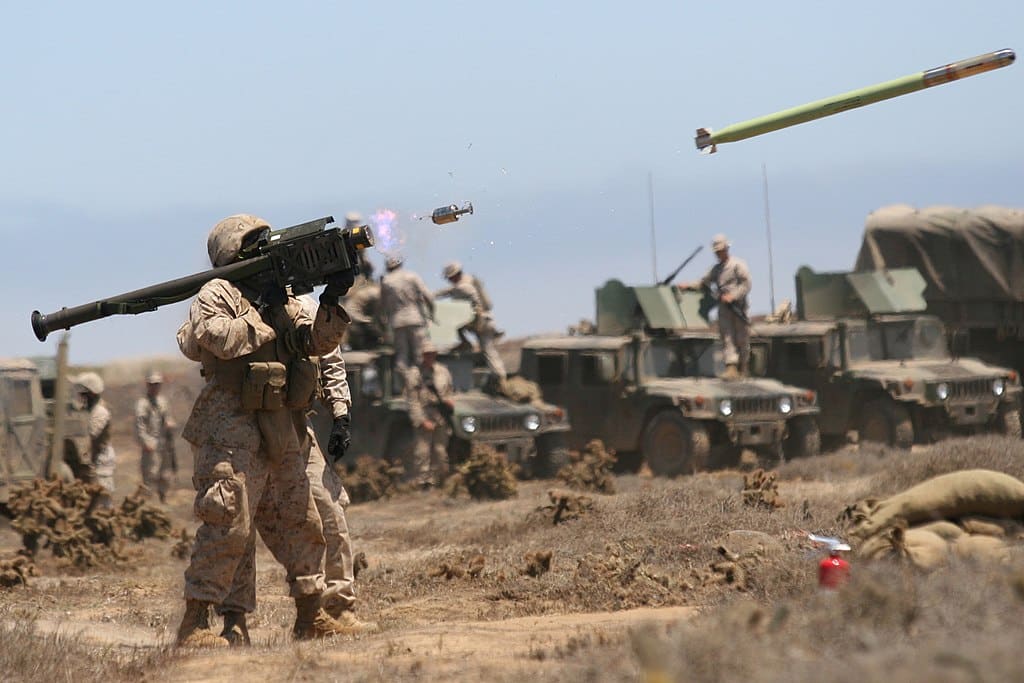Russia’s military has captured some U.S. and NATO-provided weapons and equipment left on the Ukraine battlefield and is sending them to Iran, CNN reported Friday.
According to sources familiar with the situation, there have been several instances during the past year of war in Ukraine in which Russia has seized smaller, shoulder-fired weapons equipment, including U.S.-provided Javelin anti-tank and Stinger anti-aircraft weapons that Ukrainian forces had been forced to leave behind.
In many of these instances, Russia has then flown the weaponry to Iran to be dismantled and analyzed.
“Iran has demonstrated the capability to reverse-engineer U.S. weapons in the past,” Jonathan Lord, a senior fellow and director of the Middle East security program at the Center for a New American Security, told CNN. He added that a reverse-engineered Javelin could be used by Hamas or Hezbollah to threaten an Israeli Merkava tank.
“In the hands of Iran’s proxies,” he said, “these weapons pose a real threat to Israel’s conventional military forces.”
According to sources, Russia’s aim has been to incentivize continued Iranian support for Russia’s war in Ukraine.
Iran has been supplying weapons-capable drones to Russia since last summer. While military experts tell Political IQ these drones have not been a game-changer for Russia against Ukraine, they have allowed Russia to inflict a “shocking” amount of destruction upon Ukrainian infrastructure.
Earlier this month, National Security Council spokesperson John Kirby warned that the increasing military partnership between Iran and Russia increases Iran’s ability to threaten its neighbors in the Middle East.
The Iranians are “fomenting instability in the Levant throughout the Middle East, they continue to support terrorist networks, they continue to threaten maritime traffic in the Gulf and beyond,” Kirby said in a March 3 interview with Voice of America. “And now they are directly impacting a war in Europe.”
Kirby’s warning was echoed by Defense Secretary Lloyd Austin, who said during a press conference in Israel Thursday, “Over the past year, Russia’s military cooperation with Iran has deepened, and that poses serious challenges for this region and for the safety of your citizens.”
Russia’s unanticipated mass losses in Ukraine, coupled with sweeping Western sanctions, have posed difficult challenges for Moscow in its ongoing efforts to supply the weapons and ammunition it needs to maintain its offensive.
Late last year the Pentagon expanded its efforts to track U.S. weapons in Ukraine, including through on-site inspections by U.S. military personnel stationed at the U.S. embassy in Kyiv.
When asked to comment on CNN’s reporting on Russia sending abandoned U.S. weapons to Iran, a defense official pointed to undersecretary of defense for policy Colin Kahl’s testimony before the House Armed Services Committee in February.
“We think the Ukrainians are using properly what they’ve been given,” Kahl told lawmakers. He added, “Our assessment is, if some of these systems have been diverted, it’s by Russians who have captured things on the battlefield, which always happens, but that there’s no evidence the Ukrainians are diverting it to the black market.”


